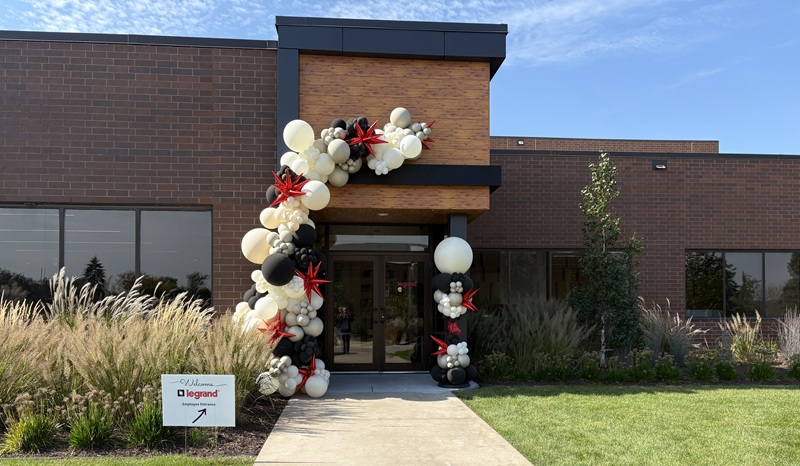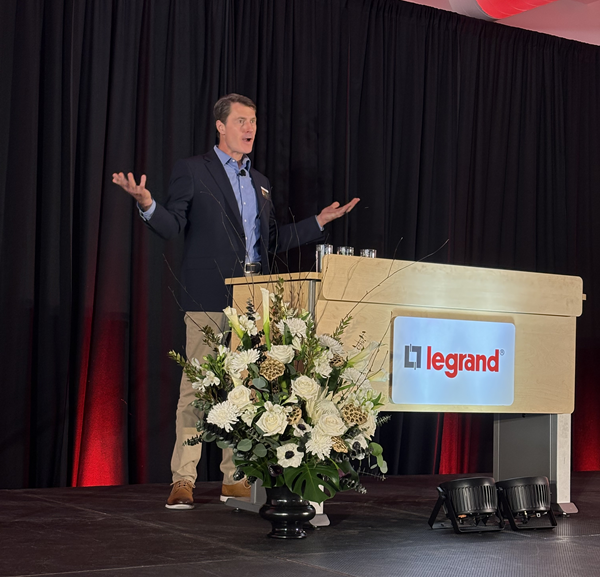In an environment of persistent economic uncertainty, Legrand AV has refined its operational strategy, drawing on lessons learned from past supply chain disruptions to enhance agility and support for integrator partners. At the grand opening of the new headquarters in Minnetonka, Minn., Brian DiBella, president and CEO of Legrand AV, provided insights into the company’s approach to navigating tariffs, strengthening its manufacturing footprint and deepening its commitment to corporate social responsibility (CSR).
A Proactive Approach to Supply Chain Challenges
According to DiBella, Legrand AV is leveraging its experience with previous tariff implementations and pandemic-related disruptions to navigate the current economic climate. He further notes that the company is more prepared than ever to shift production and sourcing as needed. “We have been far more agile and far more prepared for having to shift production around based on the lessons learned,” attests DiBella.
Key elements of this strategy include:
- Domestic Manufacturing: Over 50% of Legrand AV’s manufacturing is conducted in the U.S. which provides a stable foundation.
- Global Partnerships: The company utilizes a global supply chain with partners in various regions reducing reliance on single-source arrangements.
- Real-Time Collaboration: Weekly meetings with trade, compliance and supply teams allow for rapid adjustments based on the latest policy information and market shifts.
While some costs are unavoidable, DiBella explains that the company has absorbed much of the impact. “You’ve got to look at what’s happening in the market and what customers are willing to accept what competitors are doing,” he states. “And I think on the balance we’ve gotten it right.”
How Legrand AV is Redefining Integrator Support and CSR
For integrator partners, DiBella says that Legrand AV’s focus has returned to fundamentals. “It’s really started…with starting with the basics and getting it right,” he adds. This means ensuring predictable on-time shipments, maintaining product quality and providing self-service digital tools for tasks like order tracking. Beyond these basics, product design continues with an eye toward ease of installation as well as the growing need for digitally-enabled products that support managed services.
DiBella also emphasizes that the company’s CSR efforts will remain deeply integrated into its corporate values. One core value, “seizing the future,” is not just about product innovation but “about making decisions today that enable the business to be around and successful for the long term.” This includes responsible operations concerning pollution and carbon impact as well as fosters an inclusive internal culture.
From DiBella’s perspective, sustainability extends beyond environmental impact to practical business benefits. Here, he highlights that customers also have their own initiatives like reducing packaging waste on job sites and providing product environmental profiles. According to Dibella, the company thus approaches the idea of sustainability by asking “How do our products help them to achieve their CSR goals?”. This approach, he reveals, helps clients meet their own sustainability targets and achieve better economic outcomes.
Finally, DiBella addresses the return-to-office trend, noting Legrand AV’s hybrid policy. He sees a significant opportunity for the AV industry as companies seek to create effective hybrid environments. “I need the AV technology to really build that connective tissue and have a productive meeting,” he concludes, positioning AV as the critical enabler for the future of work.














